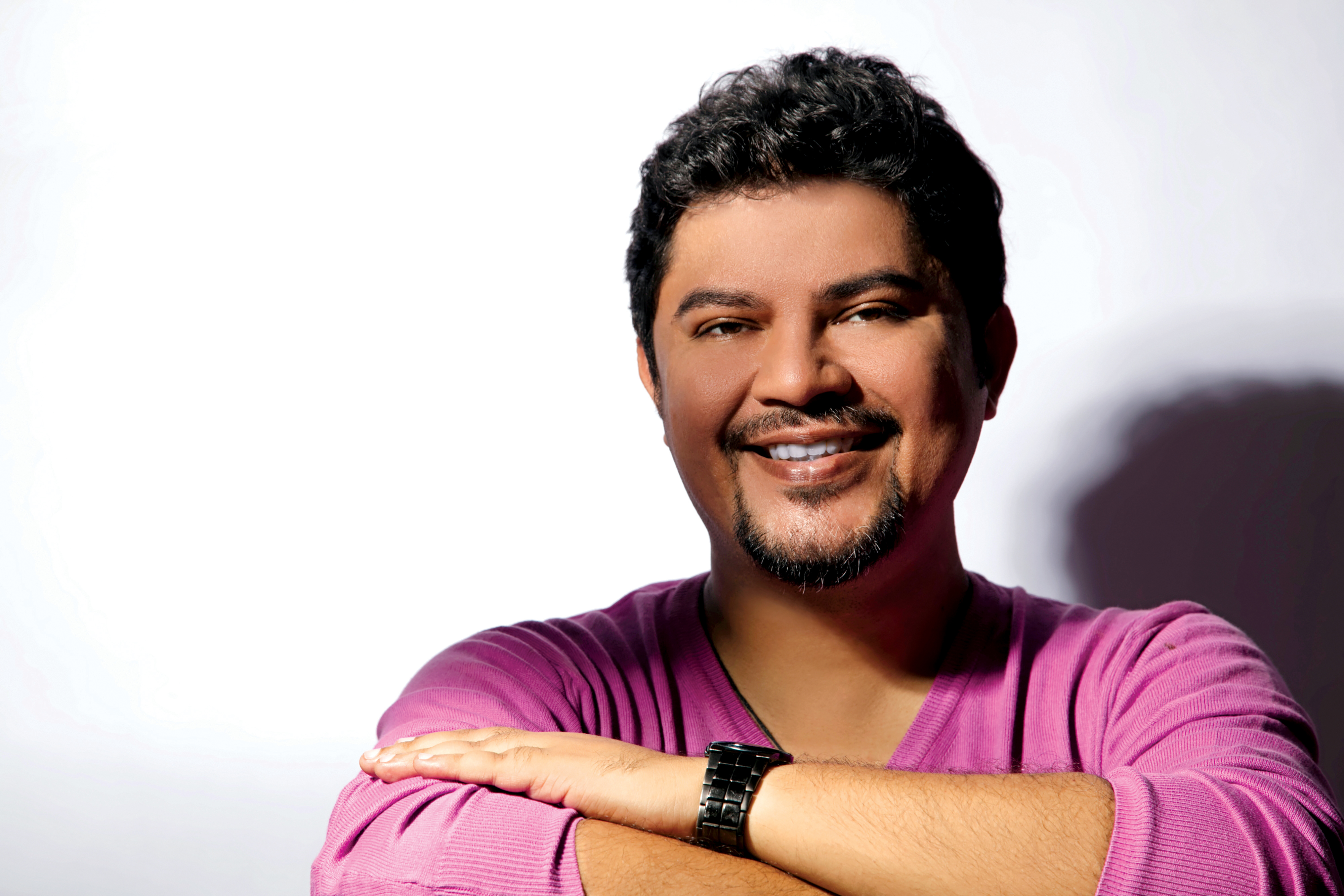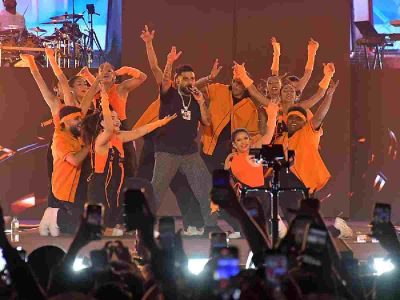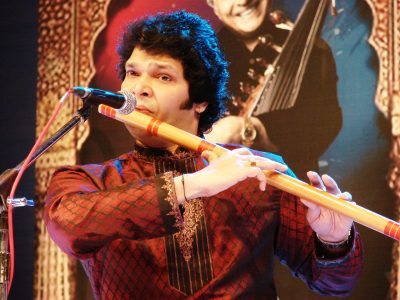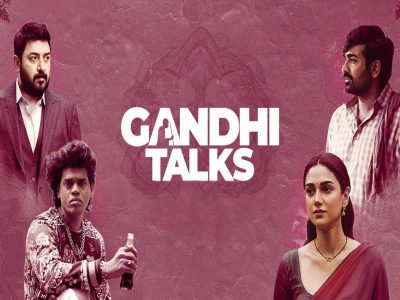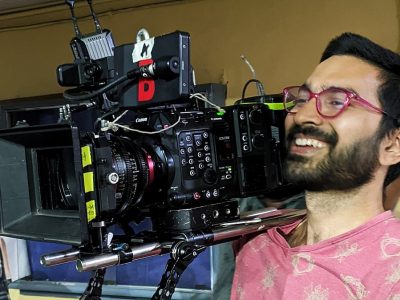Filmmaker Ram Kamal Mukherjee talks about the struggles of making films outside the studio setup and his journey so far
Author turned filmmaker Ram Kamal Mukherjee’s second film A Tribute to Rituparno Ghosh: Season’s Greetings has become the world’s first feature film to collaborate with the United Nations. The film also marks the comeback of Celina Jaitly Haag.
During his two-decade-long career as a journalist, Mukherjee wrote five books and won 10 prestigious awards, including Society Icon Award and Stardust Achievers Award for his authorised biography Hema Malini: Beyond the Dream Girl. His directorial debut Cakewalk remains India’s first short film to be premiered on satellite television.
In this interview, Mukherjee talks about the challenges of being an independent filmmaker working outside the studio system, his biography on Sanjay Dutt, collaborating with United Nations Free & Equal, and his adoration for Rituparno Ghosh.
Excerpts:
Tell us about A Tribute to Rituparno Ghosh: Season’s Greetings. How did you conceive it? How did you go about shooting it?
After making my first short film Cakewalk, I wanted to make a film on a mother and daughter relationship. Rituparno Ghosh’s films like Unishe April, Titli, Dahan and many other films dealt with such relationships.
So, I approached my former colleague and journalist Ranjib Mazumdar to develop a screenplay. After the first draft I realised that we can smartly weave in certain aspects of Rituparno Ghosh in the film. And by the end of our final draft we realised that we are actually paying homage to Rituparno and so we decided to name the film after him.
The entire process took almost three months, from inception to first copy. While we have shot it in Kolkata, our film is essentially a drawing room drama. If you see Rituparno Ghosh’s major films, they are mostly shot indoors. My cinematographer Pravatendu Mondol tried to recreate the magic on screen. He watched some of Rituparno’s classic and tried to infuse them in the film.
United Nations has collaborated with the film as the social cause collaborators. Tell us about the process that the film had to go through?
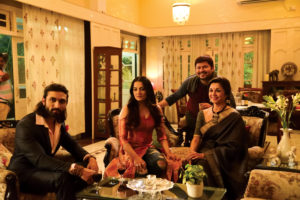
This was totally a surprise for me. In fact, it was Celina Jaitly Haag who plays the role of a daughter in the film, who suggested that we should approach United Nations Free & Equal because the film talks about LGBTQIA community in a subtle way.
I thought since Celina has been a goodwill ambassador with them, it would be an easy procedure. But I was surprised when Celina mentioned that UNFE’s guidelines are very strict and we will have to pass the film through scanner. We had mailed them a preview copy and then they had a closed-door screening at Geneva.
I am thankful to everyone at UNFE including Charles Radcliffe for understanding and appreciating the film. Since it’s set in Kolkata and has an Indian soul, I was a bit apprehensive if they would relate to the culture. But they proved me wrong, as they not only loved the film but also felt that this film needs global audience.
You have been an accomplished film journalist, columnist and an author. What prompted you to make a foray into the world of moviemaking?
After heading India’s leading film magazine Stardust for half a decade, I realised that I need to tell stories. I co-produced a finite series Bin Kuch Kahe with Rajshree Ojha for Zee TV.
After that I wrote by first fiction Long Island Iced Tea which was a collection of eight short stories. I wanted to produce it as a web series and had initiated conversation with a leading production house. They principally agreed and asked me to get top directors on board, which I eventually did. After that they delayed the procedure further and I realised that they didn’t want to invest money and waited for someone else to fund.
Then I wanted to produce a feature film with a senior filmmaker, but just two days before the shoot, my partners declared that they don’t have funds and the shoot was stalled. Meanwhile I had invested almost two years of my life, and the result was zero. That’s when I decided to make a film of my own.
I decided to start by making a short film with limited investment. That’s when Shailendra Kumar, Dinesh Gupta and Aritra Das helped me in making Cakewalk. They were the ones to risk their capital on a rookie. But it was my leading lady Esha Deol Takhtani who gave me the courage and support to make my first film as a director. I realised that until you make a product and people actually see what you are capable of making, they will always be apprehensive.
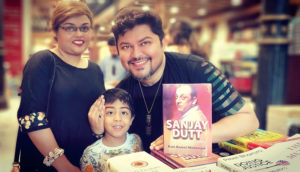
Your film marks the comeback of actress Celina Jaitly Haag. Tell us about the experience of working with Celina. Also, tell us about her involvement in the project.
I think everything is destiny. I met Celina in Dubai when I went for the music launch of Cakewalk” with Esha. After the event while we were catching up, I had discussed Season’s Greetings casually. And after few weeks I realised that I could approach Celina for the daughter’s role.
Since her marriage and motherhood, she has been busy with her kids. She went through a rough patch as she lost her parents and her newborn baby. As a friend, I wanted her to get back to movies and probably that was the only way she could have overcome her pain.
Celina loved the script and was in tears while talking to me over the phone. I knew she was the right choice because one needs to see the film from heart before one sees it through the lens. She was thoroughly involved in the project and would constantly talk to me over phone.
From the look to dialogue to character sketch, in everything she worked like a true professional. In fact, she gave time for a workshop because the male lead Azhar Khan was a newcomer and she had never worked with Lillette Dubeyji. They would do their lines and add minor nuances that would enrich the scenes.
How difficult is it for an independent filmmaker working outside the studio setup to make a film in India?
This answer can become a book by itself. But in a nutshell, it’s not at all easy. First of all, everyone discouraged me to make a short film saying that “everyone is making one, how does it matter if you also make one?” Then a famous producer told me that, “I would have invested in the film but I have already planned my annual vacation so I am running short of funds!”
Then a director friend of mine suggested that I should cast Radhika Apte so that I can sell it to Netflix. Then I started meeting investors; they would ask me to mortgage my house or ask for absurd interest on the capital. Most people would tell me, “How can you assure that you will return the investment?”
Short films are released only on YouTube and there is no guarantee of return. I knew what I wanted to make and how I wanted to make. I knew I was trying to do something new and it could have backfired. But with the grace of almighty, Cakewalk broke all possible records one could probably create with a short film. Our investors were happy with the profit, we were happy that we made a film which everyone loved. But, to answer your question in one sentence, it wasn’t a cakewalk!
Your book on Sanjay Dutt has been well received. What were the challenges of writing a book on such a controversial figure?
My book on Sanjay Dutt is a biography and not an autobiography. So, I didn’t meet Sanjay sir for his approvals on the chapters. I have interviewed him in the past and I had access to Stardust archive which helped me a lot in framing the basic structure of the narrative.
I worked on the research for almost a year and then penned the chapters. I am thankful to Rupa Publications for having faith in me as an author. I am glad that I have written this book on Sanjay Dutt. I feel that his life is nothing less than a thriller. There were several challenges while writing a book on someone who had a fair share of controversies around his life. I had to substantiate it with interviews and facts.
Tell us about your upcoming projects.
I recently finished my first Bengali feature Rickshawala and my third Hindi film Broken Frame. Currently, I am working on two more subjects for Hindi and one thriller for Bengali. I am also committed to writing another biography but there is time to talk about that.

